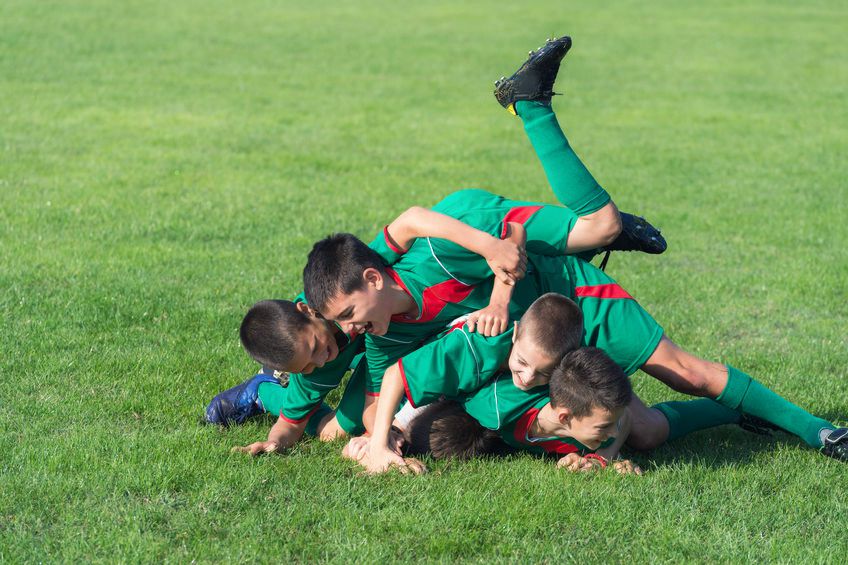
Participating in sports helps keep kids physically fit, encourages social growth, and actively builds character in even the youngest of participants. How children handle heated moments — both winning and losing in nature — has everything to do with sportsmanship. How do you teach sportsmanship, though? It isn’t easy because you are, in effect, requiring high emotional intelligence of a youth with potentially-haywire hormones. Even some parents don’t show sportsmanship. (If you’ve been parked on a bleacher for any amount of time, you’ve probably heard your fair share of these overzealous moms and dads who make unsavory comments about players or officials. It is disheartening, especially when your child is on the receiving end of the unsportsmanlike jabs.)
So, what do you do? How do you teach your kids to be kind and gracious in situations where they’ve either earned victory or found themselves on the losing team? The same basic principles apply to both.
Set an expectation of maximum effort
When prepping your child for a sporting event — or any other major activity — it is beneficial for everyone involved if expectations are made clear. If I attempt to complete an art project with my three-year-old, I do my best to explain — in simple terms, of course — what is going to happen and what I expect of her during the activity. These are not lofty expectations, either. Because she is so young, I am generally satisfied if she doesn’t eat the paint or ruin her clothes. The same concept, though — making all expectations clear — still applies. The ability to set expectations that help shape your child’s attitude even before an event occurs is a tremendous power we have as parents.
Before your kiddo has his/her next ball game, have an age-appropriate discussion that places the expectation of maximum effort and deemphasizes winning. In other words, tell your child to do his/her best and let that be enough. Winning won’t always happen score-wise, and that’s okay. If your child acts with integrity and gives their all, though, that is what matters.
Validate your child’s feelings for wins and losses
Losing is not fun for anyone, especially kids. They can experience all the same negative emotions adults do — regret, sadness, confusion — without the emotional chops to take the loss with a grain of salt. It would be a mistake to invalidate or ignore that your child is experiencing these feelings, and it would be even worse to take the “suck it up” approach. If your child experiences a loss and takes it especially hard, let him/her know that those negative feelings are completely normal and okay. Remind your child that he/she cannot change what happened; rather, it’s possible to control their reaction in terms of how they treat their teammates or opposing players.
Conversely, winning can bring emotions such as elation, pride and satisfaction. These, too, are all perfectly acceptable and valid feelings to have, and kids should know they are not gloating if they experience these emotions. There is a line, though, that they should not cross in their celebrations. Encourage your child to celebrate without “rubbing it in.”
Remind your child of respect
Remind your children to show respect for the players, coaches, officials — and, perhaps overlooked on occasion — respect for themselves during sporting events. When they give respect to others, they will receive it in return. This will enhance their relationships in both glorious and difficult moments. They should show respect for themselves by not participating in “trash talking” that may be happening around them.
If you can teach your child to be the bigger person without showing weakness during youth sports, that life skill can be carried with them and applied to many situations down the road.
If you need more information on teaching sportsmanship, there are a plethora of resources available to offer more perspective and tips on the issue. For example, Lucile Packard Children’s Hospital at Stanford recommends telling your children to avoid arguing, follow directions from coaches, and always end with a handshake. In addition, they stress that all participants in youth sports should be given an opportunity to play a fair amount of time regardless of skill level, thereby building self-esteem in individuals and trust as a team. For more tips, visit their sportsmanship page here.

















